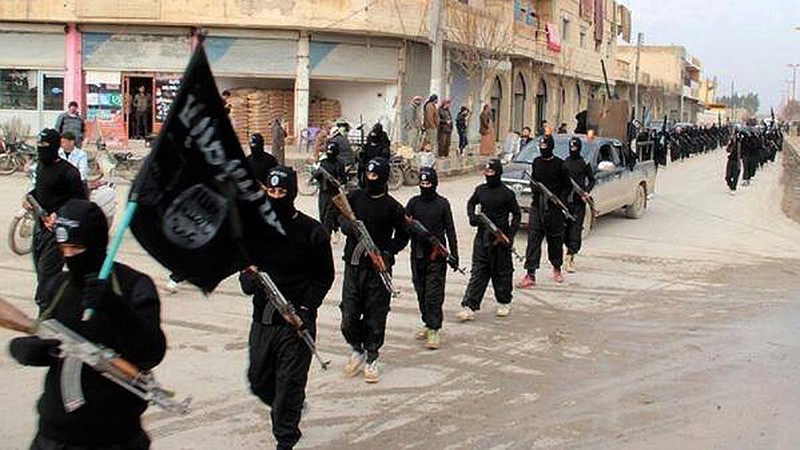BEIRUT (AP) - The Syrian rebels that the U.S. now wants to support are in poor shape, on the retreat from the radical al-Qaida breakaway group that has swept over large parts of Iraq and Syria, with some rebels giving up the fight. It is not clear whether the new U.S. promise to arm them will make a difference.
Some, more hard-line Syrian fighters are bending to the winds and joining the radicals.
The Obama administration is seeking $500 million to train and arm what it calls "moderate" factions among the rebels, a far larger project than a quiet CIA-led effort in Jordan that has been training a few hundreds fighters a month. But U.S. officials say it will take year to get the new program fully underway. The U.S. also faces the difficult task of what constitutes a "moderate" rebel in a movement dominated by Islamist ideologies.
Opposition activists complain that after long hesitating to arm the rebellion to topple Syrian President Bashar Assad - their main goal - the United States is now enlisting them against the Islamic State out of its own interests. They have long argued that the group, which aims to create a radical Islamic enclave bridging Syria and Iraq, was only able to gain such power in Syria because more moderate forces were not given international support.
"This decision is a year and a half too late," said Ahmad Ramadan, a senior member of the Western-backed Syrian National Coalition opposition group. "Had it not been for Obama's hesitation all along, this wouldn't be happening in Iraq today nor would there be this proliferation of extremist factions in Syria," he added.
Meeting with Syrian opposition leader Ahmed al-Jarba in the Saudi city of Jeddah on Friday, U.S. Secretary of State John Kerry made clear the priority in helping the rebels was to fight the Islamic State - not only in Syria but possibly also in Iraq.
The moderate opposition in Syria "has the ability to be a very important player in pushing back against ISIL's presence and to have them not just in Syria, but also in Iraq," Kerry said.
Al-Jarba, who leads a coalition in exile that only has nominal authority over some rebels on the ground, welcomed the aid, and appealed for more. But in Syria, opposition activists were skeptical.
The aid "will only worsen the crisis," said an activist in the northern city of Aleppo, using his nickname Abu Bishr for his own protection. "They want Syria to enter a new war" between rebels and extremists. "This will not help at all."
As the Islamic State has blitzed across much of northern and western Iraq this month, its fighters have also advanced in Syria against other rebels. They now hold most of the Euphrates River valley in eastern Syria. They have tightened their siege on the one major hold-out city in that region, Deir el-Zour.
In the past two weeks, they have also captured a string of villages in the northern province of Aleppo. Islamic State's fighters in Syria have been boosted by advanced weapons, tanks and Humvees captured in Iraq and then transported to Syria.
In a significant development, beleaguered Nusra Front fighters surrounded by Islamic State forces in the town of Boukamal on the border with Iraq defected this week and joined the Islamic State. That effectively handed the town over to the Islamic State, which controls the Iraqi side of the crossing.

